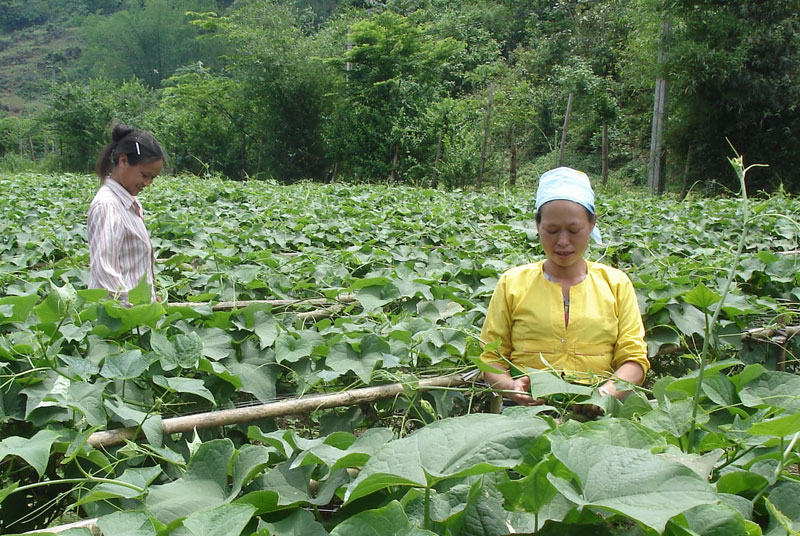



With
the province’s assistance to develop its collective brand name, Quyet Chien chayote
vegetable in Tan Lac district are now available in many markets both inside and
outside the province, helping to raise income for local farmers.
After
three years of implementing Direction No. 40 – CT/TU, dated November 13, 2014 on
promoting the development of cooperatives and connection in agricultural
production in tandem with developing large-scale fields and encouraging
residents to replace their mixed gardens, a number of large-scale fields have
been zoned off in the province. Among them are a 150ha Cao Phong orange zone
meeting VietGAP standard; a 125ha citrus fruit zone of Muong Dong Agriculture Cooperative,
and a 34ha clean longan zone of Son Thuy Agriculture Cooperative, both in Kim
Boi district.
In
2017, the provincial Department of Agriculture and Rural Development studied
and zoned off 14 areas, with a combined coverage of 289.5 hectares for
concentrated cultivation using high technology and biotechnology in seven
districts.
Over
the past three years, more than 6,000ha out of 21,000ha of mixed gardens have
been replaced with high-value plants, each ha generates hundreds of million
VND, mostly in Cao Phong, Tan Lac, Kim Boi, and Lac Thuy districts.
Focus
has been put on technology transfer to develop large-scale fields and replace
mixed gardens.
Eight
training classes on clean vegetable growing have been organised in Luong Son,
Da Bac, Kim Boi districts and Hoa Binh city. As many as 31 field-trip classes
and another to train farmers to teach others how to take care of their citrus
plants sustainably, have also been conducted in Cao Phong and Luong Son
districts, involving over 900 farmers.
Fifty
four technological processes were researched, 44 production models have been
conducted, completed and transferred to nearly 990 technicians and farmers,
helping local farmers apply technological advances in production.
In
the reviewed period, 42 agricultural projects were implemented. Connection
among managers, scientists, businesspeople and farmers has been formed in
technology transferring projects.
Due
attention was paid to the forecasting and warning for the development of insects
while the management, and supervision of the quality of agricultural products
at production and selling establishments were deployed effectively.
So
far, 436.3 hectares have been certified in terms of food safety, including
166.6 hectares meeting the VietGAP standards.
Developing
brand and seeking partners are of significance to developing large-scale fields
and replacing mixed gardens. Hence, the province has helped with building geographical
indication for Cao Phong Orange; collective brand for Son Thuy longan
fruit in Kim Boi district and chayote vegetable in Quyet Chien commune, Tan Lac
district; snake gourds in Luong Son district; granting brand certificates for
Lac Thuy orange, and Tan Lac red-flesh grapefruits.
A
wide range of trade promotion events were conducted to expand markets for each
product. Incentives were offered for building and developing brand names for
key products.
The
province’s localities were urged to direct the operation of local cooperatives and
enhancing connection with farmers to promote the distribution of products.
Provincial
authorities also helped with establishing shops to sell clean agricultural
products in Luong Son, Da Bac, Lac Thuy districts and Hoa Binh city.